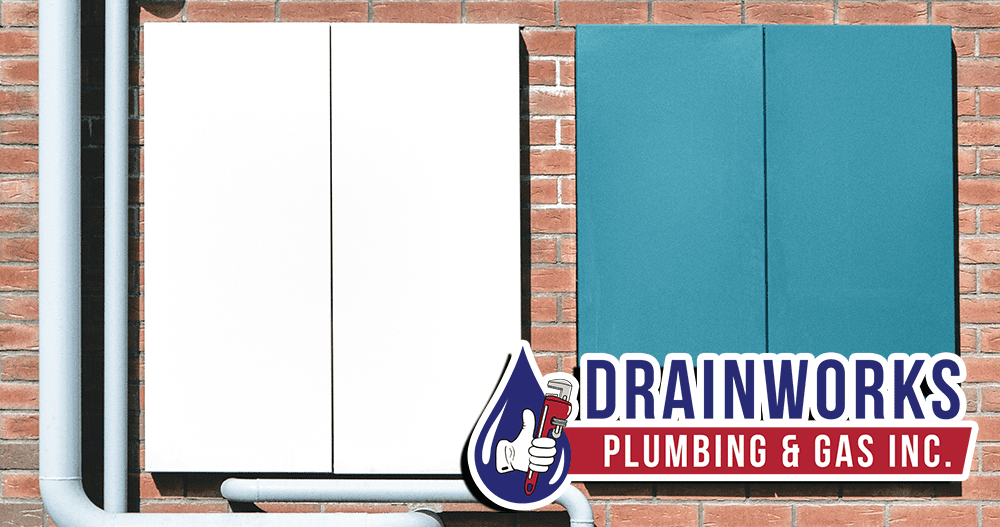The Benefits of a Natural Gas Generator
We are homeowners who depend on energy to run our daily operations. Most of what we do at home, from lighting to heating and cooling, requires power. Power outages, however, can happen and cause annoyance and disruption. Power outages can leave us without electricity for hours or even days, whether they are brought on by the weather, maintenance work, or other problems. Thankfully, there are many benefits of a natural gas generator; like a trustworthy supply of backup energy.
We’ll discuss the advantages of natural gas generators and why they make a wise home investment in this post. Together with that, we’ll discuss some of the essential characteristics of natural gas generators and what you should know before installing one in your house.
How It Works
Before we can talk about the benefits of a natural gas generator, let’s talk about what a natural gas generator is and how it works. A natural gas generator is a device that transforms natural gas into electricity. Natural gas generators are more economical and environmentally friendlier than conventional generators that use gasoline or diesel. They operate by drawing on a constant supply of natural gas that is brought to your home via underground pipelines.
Natural Gas Generator Advantages
1. A More Dependable Power Source
The fact that a natural gas generator offers a more dependable source of power is one of its key advantages. You can prevent the annoyance of power outages and the loss of services related to power with a natural gas generator. The generator will automatically start up in the event of a power outage, guaranteeing that your home has a constant source of electricity. For people who live in places where power outages are frequent, a natural gas generator is also the best option. This is due to the fact that natural gas lines are often buried, making them less vulnerable to damage from storms, tree falls, and other natural calamities that can take out power lines.
2. Cost-Effective
Compared to other generator types, a natural gas generator is a more affordable choice. You can save money on fuel over time because natural gas is typically less expensive than diesel or gasoline. Natural gas generators also require less maintenance, which translates into long-term savings on repairs and replacement parts.
3. Environmentally-Friendly
A natural gas generator also has the advantage of being more environmentally friendly than conventional generators. Compared to diesel or gasoline, natural gas is a clean-burning fuel that emits fewer emissions. As a result, a natural gas generator is a more environmentally friendly choice that can help lower your carbon footprint.
4. Generation Switching
When the power goes off, a natural gas generator is designed to turn on automatically. This implies that if there is a power outage, the generator can be started without you being there. The generator will automatically detect a power outage and turn on to supply your home with an ongoing source of electricity once it happens.
5. Rising House Value
Also, a natural gas generator might raise the value of your house. Installing a natural gas generator might be a huge selling element if you decide to sell your house. Particularly in regions where power outages are frequent, homebuyers frequently search for properties with backup generators.
6. Simple to Set Up
Installing a generator powered by natural gas is not too difficult. A qualified plumber or gas specialist can install it, and they’ll make sure it’s done correctly and safely. The natural gas generator is ready for use after the installation is complete.
7. Minimal Noise
Generators powered by natural gas are renowned for producing little noise. As a result, they are suitable for usage in residential areas without upsetting the locals. Compared to other generator types, which can be very noisy and disturbing, this is a huge advantage.
The Characteristics of Natural Gas Generators
Although there are many different sizes and types of natural gas generators, they all share some characteristics. While selecting a natural gas generator, keep the following factors in mind:
1. Wattage
The amount of electricity a natural gas generator can generate depends on its wattage. Your individual requirements, such as whether you want to power your entire house or simply a few items, will determine the amount of wattage you want. A competent specialist should be consulted to determine the ideal wattage for your house.
2. Transfer Switch Automatic
A natural gas generator’s automated transfer switch is a crucial part. When there is a power outage, it automatically switches the power source from the grid to the generator by connecting the generator to your home’s electrical system. This guarantees that your house will always have electricity, even if there is a power outage.
3. Fuel Class
Natural gas is the preferred fuel for natural gas generators. This indicates that they are linked to an underground natural gas supply line that goes to your house. Compared to portable generators, which utilize gasoline or diesel and need fuel to be manually added, this is different.
4. Noise Level
Although natural gas generators are renowned for their quiet operation, different types might have varying noise outputs. Look for a generator with a low decibel rating if noise is an issue.
5. Upkeep Needs
Compared to other generator types, natural gas generators need less maintenance. To ensure that they function safely and effectively, they nonetheless need routine maintenance. A licensed specialist should be consulted to decide on the generator’s maintenance program.
6. Size
A key factor to take into account is the size of a natural gas generator. The size of the generator you need will depend on your unique requirements. Generators come in various sizes. You may decide the ideal size for your home with the aid of a qualified professional.
Setting Up and Maintaining Natural Gas Generators
A natural gas generator installation demands knowledge and specialized tools. Installing a generator is not a DIY project, therefore you should always seek the advice of a qualified expert. You can get assistance from a qualified plumber or gas specialist to choose the suitable size and wattage for your generator and to install it appropriately and securely.
To guarantee that the generator functions safely and effectively after installation, it has to receive regular maintenance. This include verifying the fuel supply, putting the battery to the test, and looking over the generator’s parts. A licensed specialist should be consulted to decide on the generator’s maintenance program.
Conclusion
For homes searching for a dependable, affordable, and sustainable source of backup power, a natural gas generator is a wise investment. It decreases your carbon footprint, offers a constant supply of electricity during power outages, and may raise the value of your house. For households searching for a dependable source of backup power, a natural gas generator is a great option due to its low noise level, automatic switching, and simple installation.
Make sure to get in touch with a qualified gas specialist or plumber if you’re interested in putting a natural gas generator in your home so they can assist you with the installation. Certified experts like those at Drainworks Plumbing & Gas can assist you in choosing the correct size and wattage for your generator, installing it appropriately and securely, and doing routine maintenance to make sure it functions properly. You may rest easy knowing that your house will always have power thanks to the benefits of a natural gas generator, even if there is a power outage.



